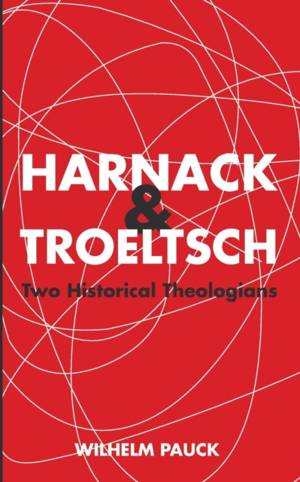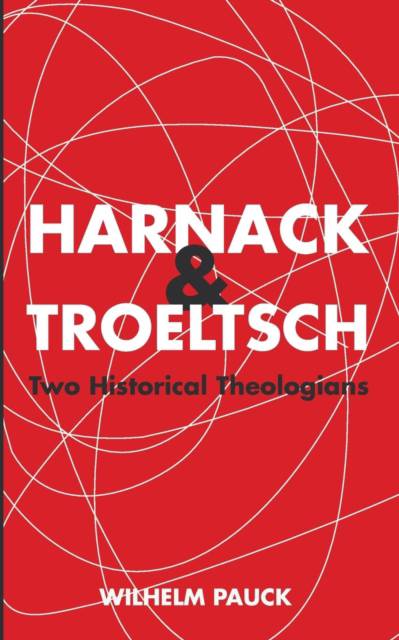
Door een staking bij bpost kan je online bestelling op dit moment iets langer onderweg zijn dan voorzien. Dringend iets nodig? Onze winkels ontvangen jou met open armen!
- Afhalen na 1 uur in een winkel met voorraad
- Gratis thuislevering in België vanaf € 30
- Ruim aanbod met 7 miljoen producten
Door een staking bij bpost kan je online bestelling op dit moment iets langer onderweg zijn dan voorzien. Dringend iets nodig? Onze winkels ontvangen jou met open armen!
- Afhalen na 1 uur in een winkel met voorraad
- Gratis thuislevering in België vanaf € 30
- Ruim aanbod met 7 miljoen producten
Zoeken
Omschrijving
As one of the leading historical theologians of the twentieth century, Wilhelm Pauck studied with Adolph Harnack and Ernst Troeltsch at the University of Berlin in the 1920s, and his own thinking was shaped by their work. In this book he clarifies their ideas and their personal relationship to one another, analyzing their particular contributions to the historiography and sociology of religion. Biographical sketches of the two men, set against the background of their time, are enlivened by vivid and amusing anecdotes about their careers and views on life. Harnack and Troeltsch were among the earliest--and remain among the greatest--""interpreters of institutional history and the ideas that govern and maintain them."" Both were in agreement with Harnack's dictum, ""We study history in order to intervene in the course of history."" In its clear presentation of these two major figures, this book is an attack on the stronghold of ignorance about the Christian heritage that has, Pauck contends, impoverished and isolated churches in the United States.
Specificaties
Betrokkenen
- Auteur(s):
- Uitgeverij:
Inhoud
- Aantal bladzijden:
- 142
- Taal:
- Engels
Eigenschappen
- Productcode (EAN):
- 9781498207164
- Verschijningsdatum:
- 21/01/2015
- Uitvoering:
- Paperback
- Formaat:
- Trade paperback (VS)
- Afmetingen:
- 127 mm x 203 mm
- Gewicht:
- 158 g

Alleen bij Standaard Boekhandel
+ 61 punten op je klantenkaart van Standaard Boekhandel
Beoordelingen
We publiceren alleen reviews die voldoen aan de voorwaarden voor reviews. Bekijk onze voorwaarden voor reviews.











